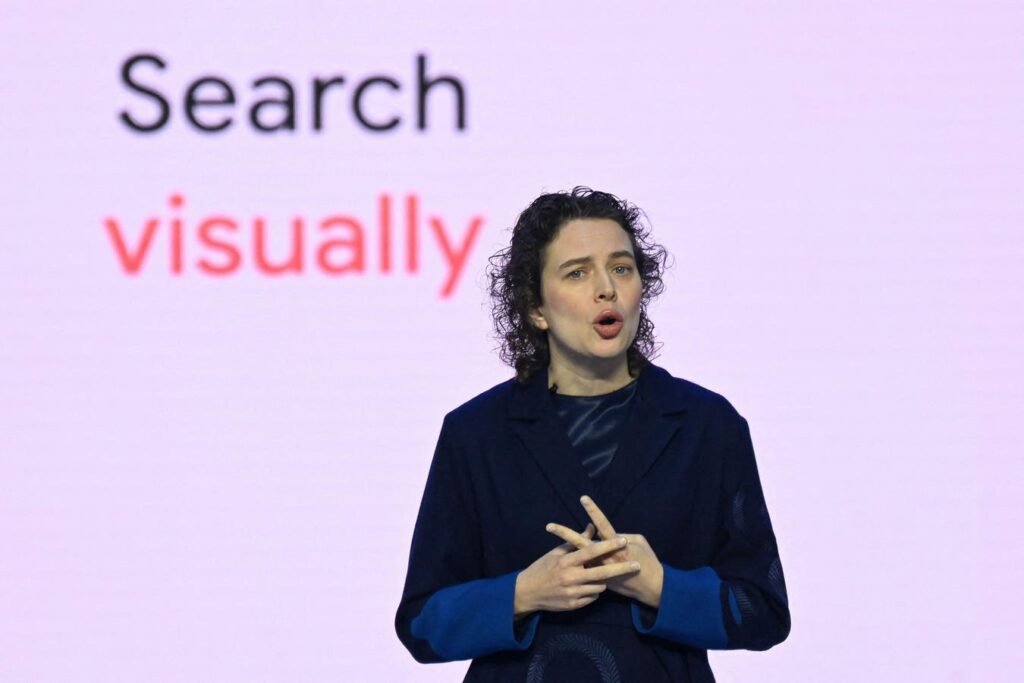
In a rapidly evolving digital landscape, artificial intelligence (AI) and extended reality (XR) are reshaping the way we interact with technology. As Google unveils its AI Overviews and Meta’s Ray-Ban smart glasses gain traction, the tech industry is on the brink of a significant transformation. These developments, however, are not without controversy and competition.
Google’s AI Overviews: A Catalyst or a Threat?
Google’s introduction of AI Overviews has sparked a heated debate among publishers and tech leaders. Liz Reid, Google’s head of Search, insists that the new AI features are designed to enhance user engagement and improve click quality. “Organic click volume has been relatively stable year-over-year,” Reid stated, emphasizing that users are spending more time on the sites they visit.
However, data from SimilarWeb suggests a different story. Major news outlets such as Forbes, CNN, and the Daily Mail have reportedly experienced traffic declines of up to 40% since the launch of AI Overviews. This has led to concerns about the potential impact on the web’s “referral economy,” as highlighted by Cloudflare CEO Matthew Prince, who warns that these changes could push companies toward pay-for-access models.
Meta’s XR Innovations: Ray-Ban Glasses and Beyond
Meanwhile, Meta’s Reality Labs is experiencing a surge in revenue, thanks to the popularity of its Ray-Ban Meta smart glasses. The company’s Q2 2025 revenue reached $370 million, marking a 5% increase from the previous year. This growth is attributed to a tripling of smart glasses sales compared to the same period last year.
Despite the success of the Ray-Ban glasses, Meta’s Quest VR headset sales are on the decline. The company has reportedly canceled its planned Quest 4 headset, shifting its focus to a new device that features a tethered compute puck and runs on Horizon OS, Meta’s standalone operating system for mixed reality.
Meta’s Research Prototypes: Tiramisu and Boba 3
At SIGGRAPH 2025, Meta Reality Labs unveiled two groundbreaking VR research prototypes: Tiramisu and Boba 3. The Tiramisu prototype boasts hyperreal fidelity with 90 pixels per degree, ultra-high contrast, and 1,400 nit brightness, although it remains bulky and heavy. In contrast, the Boba 3 prototype offers an ultra-wide field of view, approaching human vision, and maintains high resolution using Quest 3-class display technologies.
These prototypes, while not ready for consumer release, highlight Meta’s commitment to pushing the boundaries of realism and immersion in XR technology.
The Competitive Landscape: A Tidal Wave of XR Devices
The XR market is poised for a significant shift as major players like Apple, Google, Samsung, and Valve prepare to launch new devices. Meta is expected to unveil a neural input wristband and new display-enabled glasses at its Connect conference this fall. Meanwhile, Samsung and Google are collaborating on Project Moohan, an Android XR headset featuring AI integration.
Apple is rumored to be updating its Vision Pro with a new M-series chip and spatial controller support, while Valve may re-enter the market with a Deckard headset that can operate both standalone and tethered. As Scott Stein of CNet points out, 2025 is shaping up to be a pivotal year for XR, with wearability, battery life, and AI features driving innovation.
Brilliant Labs’ Halo: Affordable AR Smartglasses
Brilliant Labs is making waves with its new Halo smart glasses, priced at $299 and available for pre-order with shipping expected in late November 2025. Weighing just over 40 grams, Halo features a full-color micro-OLED display, bone-conduction speakers, and an AI assistant named Noa, capable of natural real-time conversations.
Halo’s Vibe Mode allows users to generate custom apps via voice commands, showcasing the potential for user-driven innovation in the AR space.
AI’s Creative Impact: From Social Feeds to Film Festivals
Character.AI is revolutionizing social media with its AI-driven Social Feed, allowing users to create and interact with AI avatars. This synthetic social platform is redefining content creation, enabling users to participate in evolving storyworlds.
In the film industry, IMAX is partnering with Runway to screen AI-generated short films from the 2025 AI Film Festival. Despite some backlash regarding AI’s artistic validity, the festival highlights AI’s potential to democratize creativity and enhance human expression.
As AI and XR technologies continue to evolve, the implications for industries and consumers are profound. The coming years will likely see further integration of these technologies into everyday life, with new opportunities and challenges emerging along the way.






